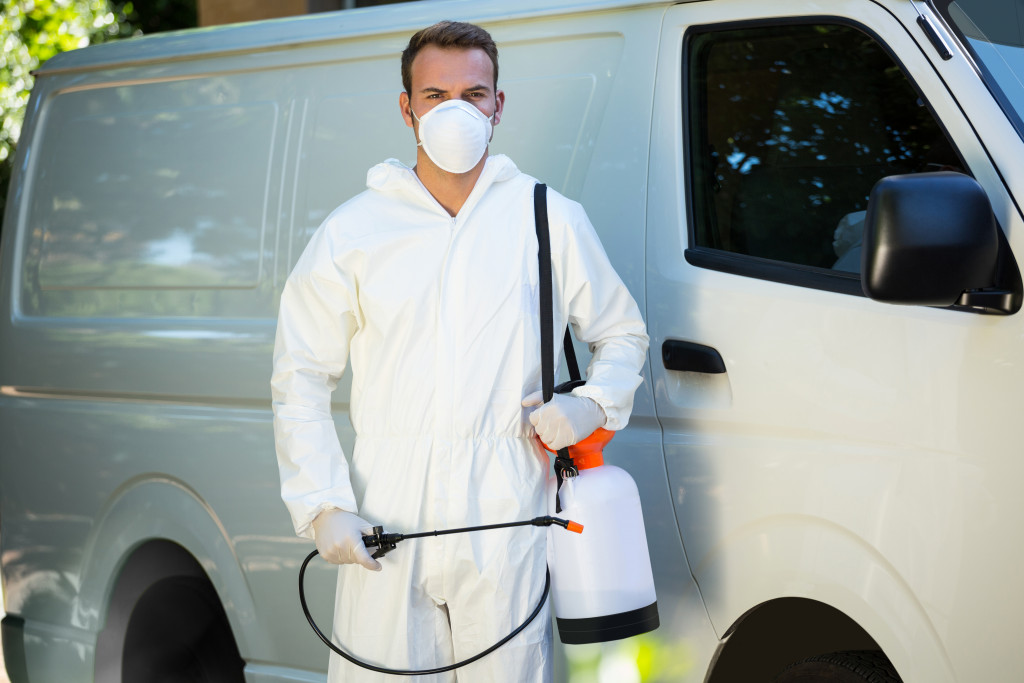Food production plants have a responsibility to their customers to ensure that the food they produce is safe for consumption. This means that they must take steps to prevent contamination in their facilities. Contamination can come from many sources, including employees, equipment, and the environment. So, how can food production plants prevent contamination?
In this article, we’ll explore 12 steps food production plants can take to prevent contamination, but first, let’s briefly discuss the types of contamination and why preventing them is so important.
Types of Contamination
There are three main types of contamination: physical, chemical, and biological.
- Physical contamination is the presence of foreign objects in food, such as pieces of glass or metal.
- Chemical contamination occurs when hazardous chemicals come into contact with food.
- Biological contamination is the growth of harmful bacteria, viruses, or parasites on or in food.
Why is Preventing Contamination Important?
Food contamination can occur in many ways and can be harmful to consumers. Contaminated food can cause nausea, vomiting, and diarrhea. It can also lead to more severe health problems, such as liver damage, cancer, and even death. That’s why it’s so essential for food production plants to take steps to prevent contamination.
10 Steps to Preventing Contamination
Now that we’ve discussed the types of contamination let’s look at 12 steps food production plants can take to prevent it.
1. Establish a Written Food Safety Program
A food safety program is essential for any food production plant. The program should include a description of the plant’s sanitation and cleaning procedures and the safety protocols that must be followed. Also, be sure to include a section on employee training. All employees should be adequately trained on food safety procedures and hygiene practices.
2. Conduct Regular Inspections
It’s essential to inspect the facility for potential sources of contamination regularly. This includes checking for cracks or holes in walls or floors and leaks in pipes or fixtures. Also, be sure to inspect equipment for signs of wear or damage.
3. Clean and Sanitize the Facility
The facility must be cleaned and sanitized regularly. This includes sweeping and mopping floors, washing walls and ceilings, and disinfecting all surfaces. According to the manufacturer’s instructions, all equipment must also be cleaned and sanitized.

4. Keep Pests Under Control
Pests can be a significant source of contamination in food production plants. So, it’s important to keep them under control. This can be done by sealing all cracks and holes and using pest control products.
5. Maintain the Equipment Properly
Equipment must be properly maintained to prevent contamination. This includes regularly inspecting and cleaning all equipment. Any damage or wear should be repaired or replaced immediately.
6. Store Food Properly
Food must be stored properly to prevent contamination. Raw food should be kept separate from cooked food, and all food should be covered when not in use. Also, be sure to rotate food so that the oldest is used first.
7. Use Latest Technology
The latest technology can help food production plants prevent contamination. For example, oil-free air compressors are much more effective in preventing contamination than traditional compressors
8. Implement a HACCP Plan
HACCP stands for Hazard Analysis and Critical Control Points. It’s a food safety plan that identifies potential hazards and establishes procedures to prevent them. All food production plants should have a HACCP plan in place.
9. Train Employees Regularly
It’s important to train employees on food safety procedures and hygiene practices. Employees should be trained when they first start working at the plant and then regularly thereafter.
10. Follow Good Manufacturing Practices
Good manufacturing practices (GMPs) are guidelines that food production plants must follow to prevent contamination. GMPs cover all aspects of the manufacturing process, from raw materials to finished products.
11. Establish a Rigorous Cleaning and Sanitizing Program
A rigorous cleaning and sanitizing program is essential for any food production plant. The program should include procedures for cleaning and sanitizing all surfaces and strict protocols for employee hygiene. Also, be sure to use only cleaning and sanitizing products that are approved for food-contact surfaces.
12. Enforce Strict Safety Protocols
Safety protocols must be strictly enforced in food production plants. This includes proper handling of food and wearing the appropriate personal protective equipment (PPE). Employees who don’t follow safety protocols should be disciplined or fired.
Bonus Tip: Get Certified
One way to show customers that you’re serious about preventing contamination is to get certified. There are several certification programs available, such as the Safe Quality Food (SQF) program. Getting certified will demonstrate your commitment to food safety and help you attract new business.
Preventing contamination in food production plants is essential to producing safe, high-quality food. By following the steps outlined above, you can help ensure that your facility is free of contaminants.



